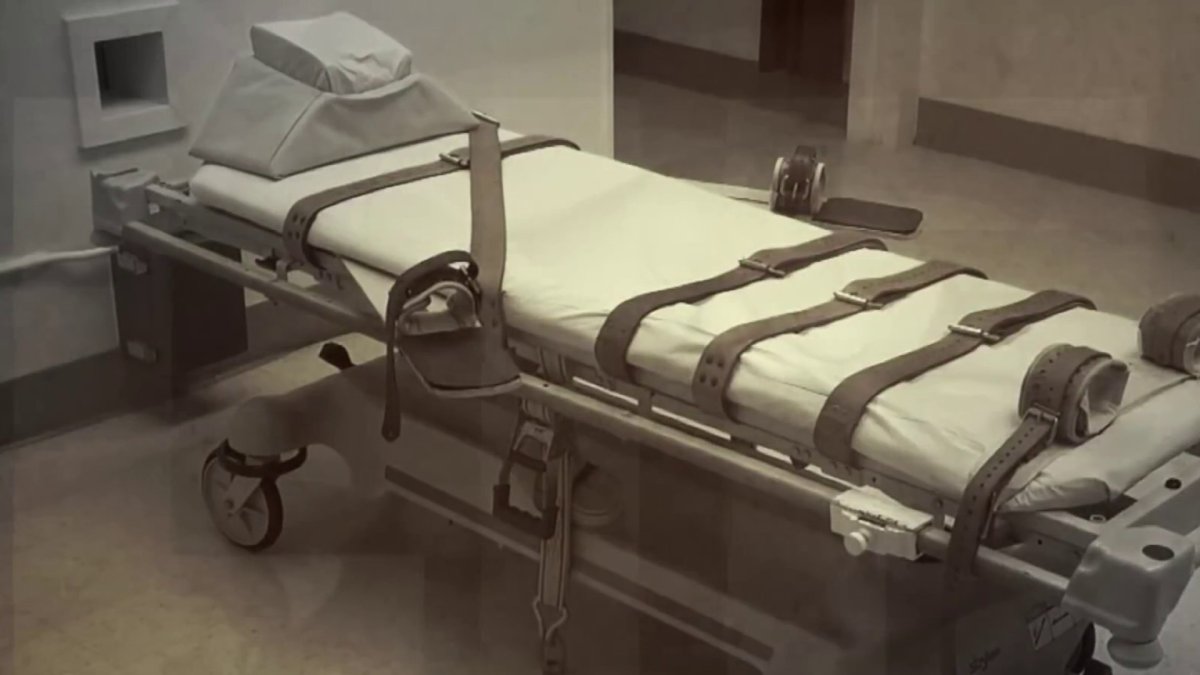
While 27 states have laws allowing the death penalty, only a handful have carried out executions in the last decade. NBC 6’s Phil Prazan reports
While 27 states have laws allowing the death penalty, only a handful carried out executions in the last decade, according to data from the Death Penalty Information Center.
In the late 1970s, the U.S. Supreme Court ruled the death penalty can only be used for the worst of the worst murders. After a peak in its use in the late 1990s, public support has gone down. Now in most of the country, practice does not match laws on the books.
For Herman Lindsey, a former death row inmate, it's as personal as it gets.
“My trial was really quick. I think the verdict was in four hours,” Lindsey said. “I will never forget that day when they said, ‘We the people of the state of Florida hereby sentence you to die by lethal injection.’ At that time, I was numb."
Get South Florida local news, weather forecasts and entertainment stories to your inbox. Sign up for NBC South Florida newsletters.
Lindsey’s conviction came in 2006 by a jury for a 1994 Fort Lauderdale murder. He served three years on death row. It’s utterly changed his life, he said, limiting what jobs he can take, homes he can rent, and everyday services he can use.
“I consider myself living a life sentence. How can I rehabilitate myself and be a person that functions in society if society has laws that are blocking me from doing so?” Lindsey said.
Florida death penalty cases are automatically reviewed by the Florida Supreme Court. When the Justices saw Lindsey’s case from Broward County, they unanimously reversed the verdict and set him free.
Local
“It’s like the Florida Supreme Court were my attorneys,” Lindsey said. “They were like, ‘where is the evidence?’”
Lindsey’s case is not unique.
While Florida ranks fourth in the number of executions in recent years, the state is number one in the number of exonerations with 30, according to the Death Penalty Information Center.
“It’s a state that seeks the death penalty a lot,” said Robert Dunham from the Death Penalty Information Center.
Dunham said there are several reasons why Florida ranks number one in exonerations: for years, juries could hand out a death sentence without being unanimous, some Florida laws violated constitutional rights according to court rulings, and the state has aggressive prosecutors who aim for the death penalty, he said.
“So, we’ve seen in Florida the most cases overturned in the courts. We’ve seen the statute overturned more frequently than anywhere else. We’ve seen more innocent people exonerated than anywhere else,” Dunham said.
Class and race, Dunham said, still play a huge role in who is sentenced to death. Data from the Legal Defense Fund shows there are almost as many Black people as white people on death row across the country even though they only represent just more than 13% of the general population.
In terms of executions, Texas leads the nation.
Data from the Death Penalty Information Center shows Texas has had 575 executions since the 1976 Supreme Court decision, Oklahoma had 117, Virginia had 113, and Florida had 99. Virginia abolished the death penalty in 2021.
Experts and prosecutors told NBC 6 voters in states carrying out executions are often in support of the death penalty and let their politicians know.
“Whether you’re on the prosecution side deciding whether you should seek the death penalty or you’re on the defense side, it’s personally very, very intense,” said Kendall Coffey, a former U.S. Attorney and currently from Coffey-Burlington Attorneys at Law.
Coffey has been on both sides: fighting for the exoneration of a death row inmate and certifying a death row prosecution as a United States Attorney based in Florida. That case ended with a different conviction and not a death sentence.
“Somebody’s life is in your hands, literally in your hands, and you’re fighting tough odds most of the time,” Coffey said.
Coffey tells NBC 6 that where it’s still in practice, voters tend to punish politicians for being soft on murder suspects.
And in some cases, like the killer in Parkland who took 17 lives, prosecutors and some families NBC 6 spoke with say the death penalty is the only way to bring them justice.
“You believe you’re dealing with a murderer, and you have great, great sympathy for the family of the murder victim, and they’re in your office tearful, saying that the only thing that can help them now is complete justice,” Coffey said.
The states with fewer executions have several things in common, according to Coffey: an active defense attorney and nonprofit community fighting for death row inmates, checks and appeals built into the process, and most important of all, Coffey said, public awareness that innocent people had been and can be killed.
“The DNA revolution and operations like (The Innocence Project) brought to the public’s attention the horrifying nightmare for a system of justice would be to execute an innocent person,” Coffey said.
Herman Lindsey also shares that view: the laws in the justice system only exist because individual people within it are flawed.
“I think we have one of the great justice systems. I believe that it’s the prejudgments and pre-thinking of members of society that makes our justice system so wrong,” Lindsey said.
Lindsey now believes ending the practice is possible.
“Rome wasn’t built overnight but it’s starting to come together,” Lindsey said.
According to Death Penalty Information Center, there are more than 2,400 people still sitting on death row across the country. California has the most, but Gov. Gavin Newsom put in place a moratorium and plans to dismantle the system in the years ahead.